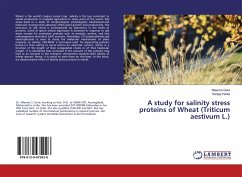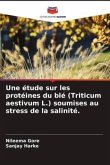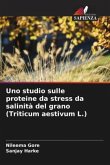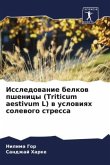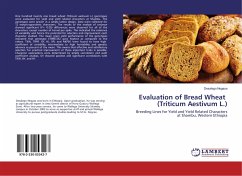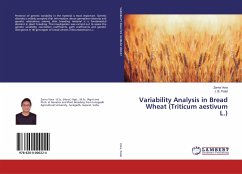Wheat is the world's largest cereal crop. Salinity is the key constraint to wheat production in irrigated agriculture in many parts of the world. Salt stress leads to a series of morphological, physiological, biochemical and molecular changes that adversely affect plant growth and productivity. The tolerance to salt stress is accompanied by alterations in the levels of proteins. Some of genes whose expression is activated in response to salt stress encode for protective proteins such as osmotin, proline, and late embryogenesis abundant (LEA) proteins. Nowadays, 2-D polyacrylamide gel electrophoresis is used to study the molecular mechanisms of plant response to salinity. SDS-PAGE a technique used for separating proteins based on their ability to move within an electrical current, which is a function of the length of their polypeptide chains or of their molecular weight. It is considered that increased in the amount of the proteins may lead to an increase in the tolerance mechanisms towards NaCl salinity of wheat species. Hence, it is useful to view them on this basis. In this book, we demonstrated effect of salinity stress proteins in wheat.
Bitte wählen Sie Ihr Anliegen aus.
Rechnungen
Retourenschein anfordern
Bestellstatus
Storno

